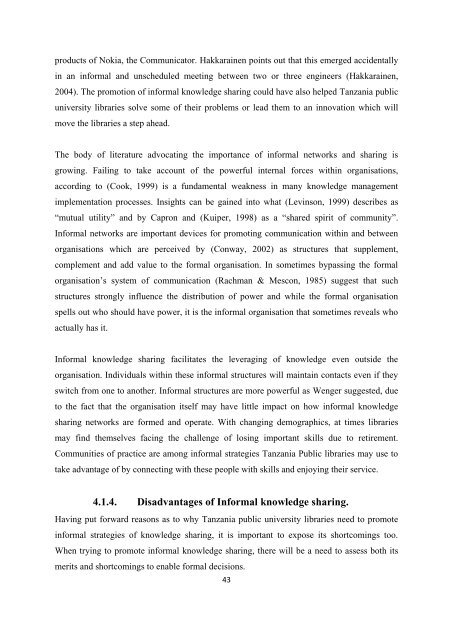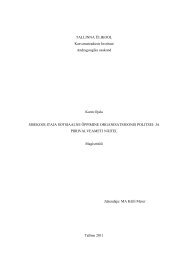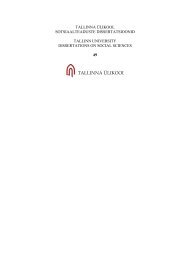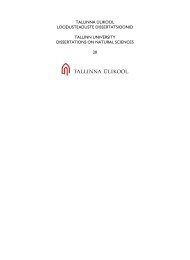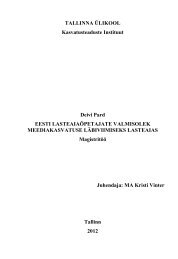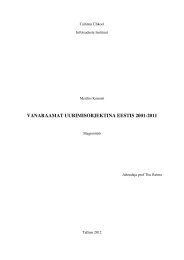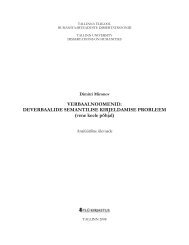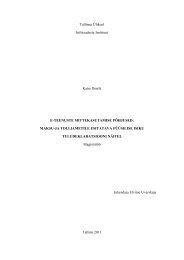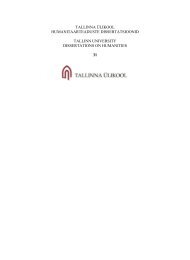Download (1157Kb) - E-Ait
Download (1157Kb) - E-Ait
Download (1157Kb) - E-Ait
Create successful ePaper yourself
Turn your PDF publications into a flip-book with our unique Google optimized e-Paper software.
products of Nokia, the Communicator. Hakkarainen points out that this emerged accidentally<br />
in an informal and unscheduled meeting between two or three engineers (Hakkarainen,<br />
2004). The promotion of informal knowledge sharing could have also helped Tanzania public<br />
university libraries solve some of their problems or lead them to an innovation which will<br />
move the libraries a step ahead.<br />
The body of literature advocating the importance of informal networks and sharing is<br />
growing. Failing to take account of the powerful internal forces within organisations,<br />
according to (Cook, 1999) is a fundamental weakness in many knowledge management<br />
implementation processes. Insights can be gained into what (Levinson, 1999) describes as<br />
“mutual utility” and by Capron and (Kuiper, 1998) as a “shared spirit of community”.<br />
Informal networks are important devices for promoting communication within and between<br />
organisations which are perceived by (Conway, 2002) as structures that supplement,<br />
complement and add value to the formal organisation. In sometimes bypassing the formal<br />
organisation‟s system of communication (Rachman & Mescon, 1985) suggest that such<br />
structures strongly influence the distribution of power and while the formal organisation<br />
spells out who should have power, it is the informal organisation that sometimes reveals who<br />
actually has it.<br />
Informal knowledge sharing facilitates the leveraging of knowledge even outside the<br />
organisation. Individuals within these informal structures will maintain contacts even if they<br />
switch from one to another. Informal structures are more powerful as Wenger suggested, due<br />
to the fact that the organisation itself may have little impact on how informal knowledge<br />
sharing networks are formed and operate. With changing demographics, at times libraries<br />
may find themselves facing the challenge of losing important skills due to retirement.<br />
Communities of practice are among informal strategies Tanzania Public libraries may use to<br />
take advantage of by connecting with these people with skills and enjoying their service.<br />
4.1.4. Disadvantages of Informal knowledge sharing.<br />
Having put forward reasons as to why Tanzania public university libraries need to promote<br />
informal strategies of knowledge sharing, it is important to expose its shortcomings too.<br />
When trying to promote informal knowledge sharing, there will be a need to assess both its<br />
merits and shortcomings to enable formal decisions.<br />
43


